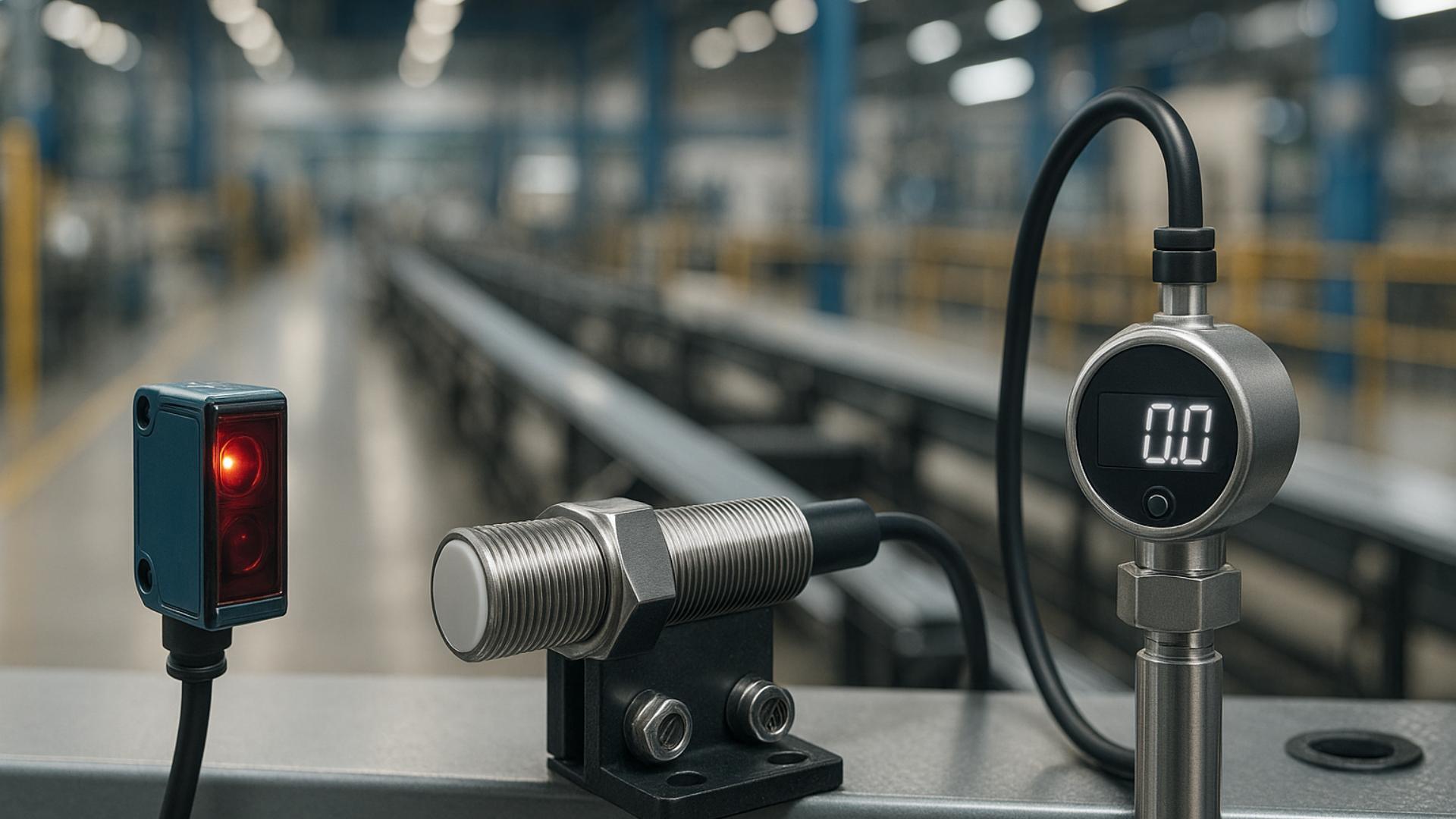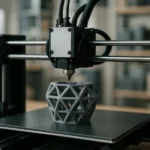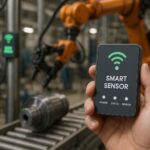In a world where technology is seamlessly integrated into the fabric of our daily lives, the pace of automation revolutionizes industries from manufacturing to healthcare, and beyond. At the heart of this transformative journey lies the humble yet mighty sensor. These powerful tools are pivotal in creating smarter, more efficient systems, capable of adapting in real-time to an ever-changing environment. Ready to dive into the world of sensors and explore their vital role in automation? Let’s embark on this journey and uncover how these innovations shape the future of various industries.
The Core Functions: Detecting and Measuring with Precision
Sensors serve as the eyes and ears of automation systems, offering invaluable insights by detecting and measuring a variety of parameters. Whether it’s temperature, pressure, or humidity, sensors provide accurate and reliable data crucial for optimal system performance. As they continue to evolve, sensors significantly enhance the accuracy of automation systems by processing and analyzing data in real-time.
In an industrial setting, sensors are indispensable for maintaining safety, efficiency, and productivity. They monitor critical parameters and seamlessly integrate with control systems to manage complex operations. By detecting anomalies and deviations, sensors play a pivotal role in preventing costly downtimes and ensuring smooth processes.
Incorporating digital sensors into automation systems has led to more intelligent and interconnected environments. These cutting-edge devices communicate with each other, sharing data that enables systems to make informed decisions autonomously. As industries continue to embrace the digital age, the role of sensors becomes increasingly prominent, driving innovation and shaping the future of automation.
Applications Across Industries: From Manufacturing to Healthcare
Across diverse industries, the role of sensors in automation is indispensable. In the manufacturing sector, they ensure the smooth and efficient operation of assembly lines by monitoring variables such as temperature, pressure, and humidity. This streamlines production processes and optimizes performance, reducing waste and increasing profitability.
In the realm of healthcare, sensors pave the way for advanced applications in patient care and diagnostics. Heart rate monitors, glucose sensors, and other medical devices collect real-time data, enabling healthcare professionals to make informed decisions and provide personalized treatment plans.
In agriculture, sensors facilitate precision farming by monitoring soil conditions, weather patterns, and crop health. This data-driven approach maximizes yields and minimizes resource usage, contributing to sustainable farming practices.
Whether in transportation, energy, or retail, sensors have a hand in automating and refining processes, leading to enhanced efficiency and performance. They have become the backbone of modern industrial applications, offering a comprehensive solution to control and monitor diverse systems in real-time. {image_content}
Innovations in Sensor Technologies: A New Era of Automation
As technology continues to advance, the development of sensors sees remarkable innovations that elevate the capabilities of automation systems. With the advent of the Internet of Things (IoT), sensors have become more portable, affordable, and interconnected. This has led to the creation of smart devices that are capable of seamless communication and real-time data exchange.
One noteworthy innovation is the integration of artificial intelligence (AI) with sensor technology. AI enhances sensory data interpretation, allowing systems to learn, adapt, and optimize processes autonomously. This leads to automation systems that not only respond to changes but also anticipate them, ensuring proactive solutions.
Moreover, advancements in sensor technology have led to the development of non-invasive and contactless sensors. These devices measure parameters without direct interaction, catering to applications where traditional methods might be limited or intrusive.
In a world that values efficiency and connectivity, innovations in sensor technologies continue to break boundaries, offering automation systems that are smarter, more efficient, and highly responsive to real-world challenges.
As we’ve explored, sensors hold a pivotal place at the core of modern automation. From industrial systems to healthcare and beyond, their ability to detect, measure, and analyze data with precision makes them indispensable in today’s tech-driven landscape.
With ongoing innovations, sensors are set to redefine the boundaries of what automation systems can achieve. As industries continue to adapt, embrace, and optimize these technologies, the possibilities are boundless, offering a future where systems are interconnected, responsive, and highly efficient.
In the ever-evolving world of technology, sensors are not just passive components; they are the catalysts driving innovation, ensuring a future where precision and performance are at the forefront of every industry. By understanding and leveraging the potential of sensors, we step into a new era of automation that promises to redefine the way we live and work.
FAQ
What are sensors, and how do they contribute to automation processes?
Sensors are devices that detect changes in the environment and send this information to other electronic devices, often forming the backbone of automation systems. By capturing data such as temperature, pressure, or motion, sensors enable machines to react and make informed decisions without human intervention.
What types of sensors are commonly used in automation systems?
In automation, several types of sensors are frequently utilized, including proximity sensors, photoelectric sensors, temperature sensors, pressure sensors, and ultrasonic sensors. Each type serves a specific purpose, from detecting objects and measuring distances to monitoring environmental conditions.
How do sensors improve the efficiency and accuracy of automated systems?
Sensors enhance the efficiency and accuracy of automated systems by providing real-time data that helps machines make precise adjustments and decisions. This minimizes errors, reduces waste, and optimizes the performance of industrial processes, leading to increased productivity and reliability.
Are there any challenges involved in integrating sensors into automation?
Yes, there are challenges in sensor integration, such as ensuring compatibility with existing systems, maintaining accurate calibration over time, and managing data security. Additionally, selecting the right type of sensor for specific tasks and environments can be complex, requiring careful consideration and planning.
What future developments are expected in the field of sensors for automation?
Future advancements in sensor technology for automation are likely to focus on enhancing sensitivity, miniaturization, and energy efficiency. We may also see the integration of artificial intelligence, enabling sensors to process and analyze data locally, further improving the responsiveness and decision-making capabilities of automated systems.



